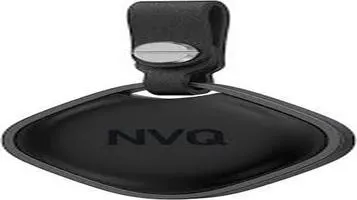Bluetooth Tracker
A Bluetooth tracker is a compact, wireless device designed to help locate misplaced or lost items using Bluetooth technology. Typically small and lightweight, these trackers can be easily attached to keys, wallets, bags, or other personal belongings. Once paired with a smartphone through a dedicated app, the tracker communicates its location within a specific range, usually up to 200 feet. If an item goes missing, the app can trigger the tracker to emit a sound, making it easier to find. Additionally, many trackers offer a community feature, where other users' devices can help locate lost items beyond the immediate range. Bluetooth trackers are popular for their convenience, ease of use, and ability to save time and reduce stress by minimizing the hassle of searching for lost possessions.

In today's fast-paced world, keeping track of personal belongings is more essential than ever. Losing your keys, wallet, or even your pet can be a stressful and time-consuming experience. Enter the Bluetooth tracker—a small, ingenious device designed to help you keep tabs on your valuable items with the assistance of your smartphone. In this review, I will delve into the features, performance, and overall value of a typical Bluetooth tracker, exploring both its strengths and potential limitations.
Design and Build Quality
Most Bluetooth trackers are compact, lightweight, and designed to be unobtrusive. They typically come in various shapes and sizes, often resembling small keychains or credit card-sized devices that can easily be attached to or slipped into your belongings. The build quality of these devices is generally robust, with many offering water and dust resistance to withstand everyday wear and tear. The aesthetic is usually minimalist, with a focus on functionality over form, although some brands do offer a variety of colors and finishes to suit personal preferences.
Setup and Usability
One of the standout features of Bluetooth trackers is their ease of setup. Most devices can be up and running within minutes. The process usually involves downloading a corresponding mobile app, creating an account, and following simple on-screen instructions to pair the tracker with your smartphone. The app interface is typically intuitive, with clear options for adding new devices, setting up alerts, and viewing the location of your tracked items.
Once set up, using the Bluetooth tracker is straightforward. If you misplace an item, you can open the app and see its last known location on a map. Many trackers also feature an audible alarm that can be triggered via the app, helping you locate items hidden in plain sight. Conversely, if you have the tracker but can't find your phone, many models offer a button that, when pressed, causes your phone to ring—even if it's on silent mode.
Performance
The performance of Bluetooth trackers is generally impressive, particularly in terms of range and accuracy. Most trackers offer a range of up to 200 feet under ideal conditions, although walls and other obstacles can reduce this distance. The accuracy of the location data can vary, but it is typically sufficient for finding misplaced items within your home or office.
One of the most useful features of modern Bluetooth trackers is the "crowd GPS" functionality. This feature leverages the collective power of other users' smartphones to help you locate your items if they are lost outside the range of your own device. When another user comes within range of your lost tracker, their app will anonymously update the location on your map, greatly increasing the chances of recovery.
Battery Life
Battery life is a crucial aspect of any Bluetooth tracker, and most devices perform admirably in this regard. Many models use coin-cell batteries that can last up to a year before needing to be replaced, while others come with rechargeable batteries that can last several months on a single charge. The app usually provides battery status notifications, ensuring you are never caught off guard by a dead tracker.
Additional Features
In addition to basic tracking, many modern Bluetooth trackers come with a suite of additional features. Some models offer built-in speakers with varying levels of loudness, making them easier to locate in noisy environments. Others include motion sensors that can alert you if your item is moved, adding an extra layer of security.
Some high-end models integrate with smart home systems like Amazon Alexa, Google Assistant, or Apple HomeKit, allowing you to use voice commands to locate your items. This integration can be particularly useful for tech-savvy users who want a seamless, connected experience.
Limitations
Despite their many strengths, Bluetooth trackers are not without limitations. The reliance on Bluetooth technology means that their range is inherently limited compared to GPS trackers, making them less effective for tracking items over long distances. Additionally, while crowd GPS functionality is a valuable feature, its effectiveness depends on the number of other users in your area, which can vary significantly.
Another potential drawback is the privacy concern associated with crowd GPS. Although most systems are designed to be anonymous and secure, the idea of your device relying on other people's smartphones may be unsettling for some users.
Conclusion
Bluetooth trackers are a remarkably effective solution for keeping track of your personal belongings. Their ease of use, robust performance, and additional features make them a worthwhile investment for anyone prone to misplacing items. While they do have some limitations, particularly in terms of range and reliance on other users for crowd GPS functionality, their benefits far outweigh these drawbacks.
For the average consumer, a Bluetooth tracker offers peace of mind and a convenient way to ensure that your valuable items are always within reach. Whether you are looking to keep tabs on your keys, wallet, or even your pet, a Bluetooth tracker is a small but powerful tool that can save you time and reduce stress in your daily life.






